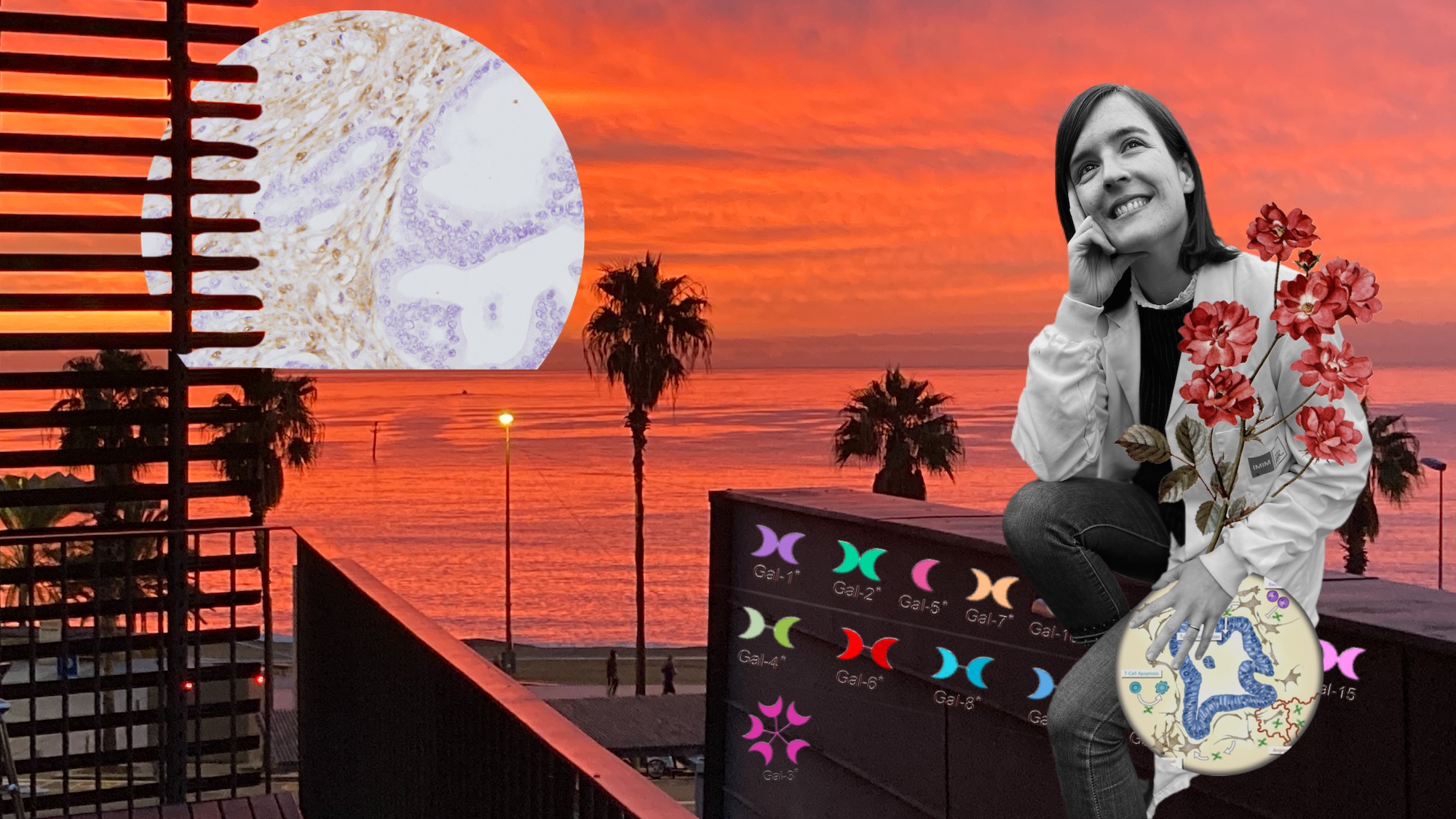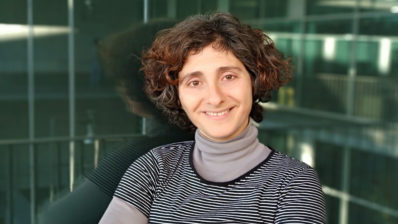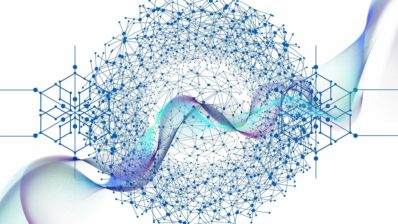Neus Martínez has been working for 15 years in the laboratory, led by Pilar Navarro, at the Cancer Research Programme of the Hospital del Mar Medical Research Institute (IMIM), where she studies pancreatic cancer. Testimony to this are the 24 laboratory notebooks she has accumulated since she began her doctorate, which meticulously contain each and every one of the experiments she has carried out since then. These experiments have led to the discovery of a new blood biomarker that could help detect this type of tumor early. Precisely because of this finding, Neus and Pilar have been nominated for the Vanguardia de la Ciencia 2023 award – you can vote for them until February 28!
A chemist by training and passionate about science, it has always been clear to Neus that she wanted to have a large family and be able to devote time to it; undoubtedly one of the most difficult challenges of her career.
Lately she has made her debut with scientific outreach by creating video abstracts of scientific papers, from Science&Design. The part she likes the least from research is animal experimentation, and she is an active fighter for a more sustainable research.
We encourage you to get to know Neus better in this interview!
Is a scientist born or made?
Probably both are needed to become a scientist.
What is your area of research?
In our group we study pancreatic cancer, one of the tumours with the worst prognosis. Science requires a lot of imagination and power of abstraction. We talk all day long about cells, proteins, molecules that, for simplicity’s sake, we end up summarising and drawing in 2D diagrams. But we often forget about the third and fourth dimensions, structures, vibrations, movements… It is very complex, and although knowledge is becoming increasingly detailed and we know a great amount about pancreatic tumours, the statistics surrounding this cancer remind us every day that we are still far from understanding how it develops and how to attack it. In particular, in pancreatic cancer, the tumour cells are immersed in a very special context that we call stroma, made up of protein deposits and non-tumour cells, which has a very important effect on the characteristics of this tumour and on the failure of many therapies. Sometimes I imagine pancreatic tumours as an ocean where fish (the tumour cells) live and interact. The water isolates them from the fisherman in a similar way to how the stroma hides the tumour from therapies.
What sparked your interest in science?
When I was studying Chemistry at university, I realised that I loved everything that touched on the chemistry of life, and so when I finished my degree I took the step towards biomedicine. But my interest in research came from my quantum chemistry professor and a few summer weeks as a visitor in his group. When he talked about his projects with the group it was exciting, he was so happy!
What kind of student were you?
I was a good student; in hindsight, too much of a sufferer.
What would you be if you hadn’t become a scientist?
I think I could be happy in many different jobs. I love the contact with the clinical staff and their work, for me it is one of the strengths of our research. I admire the significance of their day-to-day work. I also find teaching fun. But if I were to fantasise, I could perhaps open one of these Parisian-style patisseries and dedicate myself to finding sweet creations!
If you could travel in time, what would you choose: past or future?
I think I would prefer to stop time. Sometimes I have the feeling that life goes by too fast.
What would you like to add to the phrase: finally solved…?
The fight against climate change.
Which preconceived idea about scientists do you think is true and which do you think is false?
Science is very vocational and I think this comes through in our environment. At the same time, society sees us as very ‘square’ people, although in reality our work is much closer to creativity than it seems.
The best advice you have ever been given.
The first day I came for the interview at IMIM, I was told: “Success in science is based on resistance to failure”. At the time I didn’t really understand what they were saying. Until then, if you were organised, responsible and hard-working, you were guaranteed academic success. But all this changes in the doctoral thesis… You no longer have a question with a correct answer in front of you; in fact, maybe it doesn’t even have an answer. For the first time in your life there is no proportional relationship between the effort involved and the result. And this is very hard to understand and assimilate. Suddenly you become just another doctoral student: you no longer stand out, nobody expects perfection from you. And this is where I have found much more room to grow, to enjoy the work I like.
What has been your best failure?
Not continuing to climb the scientific career ladder once I finished my doctoral thesis. At that point I decided to start a personal family project and stay in an intermediate scientific position that allows me to continue doing experimental research in a way that is compatible with family life. I am privileged in the world of research: unfortunately there are very few stable positions in this intermediate point.
Do you have a favourite quote?
“There are only two ways to live life. One is as if nothing is a miracle. The other is as if everything is”, by Albert Einstein.
Who is your favourite scientist and why?
Margarita Salas. It is impressive the path she took in the historical context in which she lived. Thanks to her discovery of polymerase, the foundations for PCR were laid. Little did she know, during the last months of her life, that within a few months this technique would leave the scientific world and become world famous because of the Covid-19 pandemic!
Can you recommend a book?
The Doctor, by Noah Gordon. I read it when I was 15 on the recommendation of my mother (the best advisor in the world!) and it opened me up to the world of non-young adult literature.
A band?
Jack Johnson.
An artist?
Marmor, a multidisciplinary artist based in Berlin: he fills every wall in my house!
A film?
Coco by Pixar.
A Twitter account?
Ours! @PNavarro_Lab.







